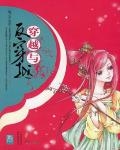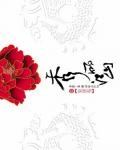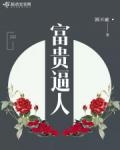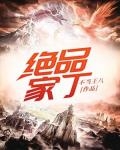Volume 3: The Land of Jingchu Chapter 233 Infantry Armor
"On behalf of the Prime Minister, I would like to thank Mr. Bai for his kindness. I believe that the Prime Minister can also understand Mr. Bai's sincere desire to support the Han Dynasty. However, I cannot guarantee whether the transaction can be carried out." Sima Lang said.
Of course, Sima Lang estimated that Cao Cao would most likely buy it later - after all, sabers of this quality were extremely rare even in Cao's army, and... they were made of iron and were even ready-made weapons. Wouldn't it be hard on himself if he didn't buy it?
It just needs to be more thoughtful first, and then the price can be lowered.
When Zhang Zhao heard that it was going to be sold, he became even more anxious.
Although Jiangdong is a place rich in copper and iron, but... at this point in time, how can we sell weapons out?
He just didn't want to see Jiangdong, which was becoming increasingly powerful, putting all its strength into military equipment, not that he wanted to aid the enemy!
However, just when he was about to speak, he changed his mind and stopped talking when he saw that old man Lu Kang was sitting very steadily. He believed that the lord should have informed Lu Kang about this matter, and since the lord was able to convince Lu Kang, he must have his own reasons.
This is indeed the case...
Talking about mineral reserves? Iron ore and copper ore are the strengths of Jiangdong. Even in later times, Jiangdong is second only to the Northeast in iron ore and second only to Yunnan in copper ore. Now these two places are Fuyu and Nanzhong respectively.
The latter is full of barbarians. Even after Zhuge Liang captured Meng Huo seven times, the barbarians in the south did not remain quiet for several years, but the trade became much smoother. The former is still the Kingdom of Buyeo - the king is now the son-in-law of Gongsun Du, and is considered a foreign country dependent on Gongsun Du.
How many people were there in the Eastern Han Dynasty? Yangzhou had plenty of copper and iron!
The reason why copper and iron are also very precious in Yangzhou is simply because the excavation efforts are not strong enough.
As long as the rock drill can be built, black powder is readily available, and the simplest and crudest trick of "blasting the mountain" is learned, it will be enough to increase the output of Jiangdong's mineral resources several times compared to the current shallow mining...
Moreover, when exporting strategic materials, Baitu would definitely also collect strategic materials - food and grass from the Central Plains, ore from Liaodong, horses from the north...
In this way, not only can the Ministry of Works maintain its expenses, but there is also an extra benefit... If it directly connects with a certain family and recognizes the other party as an "agent", then... will the local princes be disgusted , disgusted, or disgusted?
When Bai Tu thought of this, he looked at Sima Lang with a kinder look.
Sima Lang didn't know what he was thinking, but he shuddered instinctively!
"It's okay, I just said it casually. You don't have to feel pressured, Boda... Envoy Liu of Xuzhou should also be interested. The Gongsun family of Liaodong, the Ma family of Xiliang... are now protecting the people of the Han Dynasty and intimidating the Qiang, Hu and Xianbei. I believe they will also need these. The Prime Minister's Office doesn't have to take it too seriously." Bai Tu said, raising his glass.
Sima Lang's face froze when he heard this - was this telling the Prime Minister's Office not to take it to heart?
As for Liaodong and Xiliang, he didn't believe that Bai Tu could sell swords to them, but Xuzhou... Let alone other things, Jian Yong from Xuzhou was also at the banquet!
Could this be Bai Tu’s idea?
Bai Tu no longer paid attention to him, and Pang Tong beside him said at the right time: "My lord, the Ministry of Industry has recently designed and created a new battle armor, using a new concept and design style. I hope to take this opportunity to present it to your Tiger Guards!"
"Present it." Bai Tu said.
I saw several big men coming up, two of them carrying a piece of armor on a pole...
It was so heavy that it was described as "seaters" - two burly men tied four pieces of armor on one pole.
At this time, the armor of the Eastern Han Dynasty was mainly lamellar armor for the soldiers, while the generals usually wore scale armor - and only generals of a certain rank could have it, as squad leaders and sergeants did not have this treatment.
The so-called lamellar armor is leather armor inlaid with large hard plates, which mainly protect the chest and ribs. The inferior quality ones are made of hardwood plates, while the better ones are made of iron or copper plates.
Of course... that is to say, the Yangzhou army is well-equipped. Otherwise, the third-rate armies of the general princes usually wear leather armor and cloth, and even lamellar armor is only available to first- and second-tier armies.
As the name suggests, scale armor is a dense array of iron scales that are stacked layer upon layer and embedded in the lining, with a higher coverage rate.
These are old techniques that have existed since the pre-Qin period. Although there have been some improvements, the basics remain unchanged.
In history without the White Rabbit Effect, armor during the Three Kingdoms period also made great progress - just like weapons, it was war that could best promote changes in armor!
Chain mail began to appear during the Three Kingdoms period, and the prototype of Mingguang armor appeared later...
The former is a group of small iron rings connected together to form an armor that looks like an "iron net", while the latter is a large piece of copper and iron like a breastplate, protecting the chest, abdomen, and back, and is usually used in conjunction with chain mail or scale armor.
After the development in the Wei, Jin, Southern and Northern Dynasties, chain mail and Ming Guang armor were both included in the "Thirteen Armors" in the Tang Dynasty. At the same time, the Shanwen armor that was popular in the late Tang Dynasty can also be regarded as an optimized variant of chain mail - the iron rings are no longer circular, but in the shape of a Chinese character "山", woven together.
In the late Tang Dynasty, the Ming Guang Armor gradually withdrew from the battlefield...
The second major revolution in armor was the infantry armor that appeared in the Song Dynasty!
Although it was nailed on the "cowardly cross" of valuing civil over military, the heavy infantry of the Song Dynasty was indeed glorious...
The Song Dynasty, which lacked cavalry, was able to fight against the Liao and Later Jin in the north precisely because of its powerful and well-fed heavy infantry!
The basic small unit of infantry armor is no longer a "ring", but a piece of woven armor leaf. Like the armor of his old enemy, the Iron Pagoda of the Later Jin Dynasty, it is a structure with layers stacked from bottom to top.
Compared to chain mail, the infantry armor's ability to resist long-range attacks is greatly improved. Although it cannot withstand direct hits from arrows, at least it will not be shot through by stray arrows or projectiles unless it is too unlucky.
Moreover, as infantry armor, the designers of the Song Dynasty's infantry armor also aimed to "make the ox tired to death."
Another feature of the infantry armor is that it can further enhance its defense by adding more armor, but it is also heavier!
The heaviest is the armor of the spearmen, because the spearmen of the Song Dynasty had to shoulder the heavy responsibility of blocking the cavalry charges, so... it was really heavy.
Under normal circumstances, spearmen carried weights of 60 to 70 kilograms in later generations, and when fully armed, they wore armor weighing more than 100 kilograms - there was no chance of desertion!
The lightest crossbowmen have 70% as much armor as the spearmen...
Even in the "normal state", it is already the pinnacle of the weight-bearing capacity of cold weapons and armor throughout the ages, both at home and abroad.
When marching, you need to push the armor like transporting baggage, only wear inner armor, wear full armor when on alert, and only bring the rack when fighting!
Therefore, the Song Dynasty's heavily armed heavy infantry did not need to think about raids or encounters, they could only fight positional battles, and did not need to think about chasing the enemy. Not to mention that they could not catch up, if they ran a few more steps, they would probably be killed...
If you lose the fight, don’t even think about running away, the opponent can catch up with you by just jumping on one leg!
Under the command of Pang Tong, these things that were carried up looked like scales at first glance, but they were denser than scales and had a much higher coverage rate. If you look closely, you will find that... they are made up of pieces of armor leaves!
There is no need to experiment. Just look at these strong men panting with exhaustion, and then hear the armor falling to the ground, and they can feel safe.
But...the guards all looked at Pang Tong.
Although armor can protect life, but... who is it designed to tire to death?
As for the design concept and design style...this Ministry of Industry is so bad!
Pang Tong seemed to sense everyone's resentment. He shook his hair, which was no longer flowing, smiled slightly, and asked the strong men to perform separately.
Just like nesting dolls, the outermost layer was disassembled with several parts "clicking, clicking, clicking", and it immediately felt a little simpler. Then it was lifted again - the outer layer of armor was lifted up along with the hanger, revealing the inner armor...
Pang Tong also introduced in detail the advantages and disadvantages of this "heavy armor".
After being loaded into the battle armor, the original defects of the infantry armor are actually greatly compensated - Bai Tu is unable to explore the principle of the battle armor, but what is certain is that after loading the infantry armor, it is equivalent to putting the bulky infantry armor into the "military talisman".
It will not cause any additional burden on the march.
Instead, the armor has three forms: one is the ordinary marching form, the second is the battlefield form, and the third is the enemy-facing form - the defense capability increases successively, but the constraints on flexibility and speed also become more and more obvious.
"Can it be equipped for the entire army?" Bai Tu asked.
Hearing Bai Tu's words, Zhang Zhao almost jumped up from his chair...
Fortunately, Pang Tong shook his head and said, "My lord, this kind of armor is quite expensive, and it would be very inconvenient to equip ordinary Ji-made soldiers. From a tactical perspective... it is not advisable for all of them to be equipped."
nonsense!
Was the Song Dynasty rich? It had an army of more than one million, with 800,000 imperial guards alone!
But... when the military preparations were most complete, including the troops of bigwigs like Han Shizhong and Yue Fei, there were only a little over 100,000 people who could be considered fully armed.
As for the Jin Dynasty's heavy cavalry, the Iron Pagoda, there were only 5,000 of them at its peak.
"Well, let's equip them in stages! First popularize it among sergeants and squad leaders, and then count the number of heavy armors needed by each army. In addition... ordinary light leaf armor should also be equipped to the entire army three years ago." Bai Tu said with great wealth.
Of course, Bai Tu had already known and decided this a long time ago. The reason he said it now was just to remind Sima Lang, Jian Yong and the others - lamellar armor and scale armor are also for sale!
"Yes." Pang Tong agreed.
At this time, Bai Tu also praised Pang Tong again, and announced that the performance of all officials in the Ministry of Works would be promoted by one level. Officials involved in the Jian'an Four Military Swords and Jian'an Four Leaf Armor projects would be rewarded according to their merits!
However, Pang Tong did not feel proud of himself. He just thought that these were all skills taught to him by Bai Tu, but he learned slowly, so there were so many "transitional products".
In fact, Bai Tu and Pang Tong both knew that there was another kind of armor that was more practical than infantry armor. That was the plate armor that could truly "use a shield to defeat a spear" - it was made of a whole piece of two-millimeter-thick iron plate, and was lighter than the heaviest infantry armor. As for its defensive power... it could guarantee an 80% to 90% blocking rate against arrows shot directly from the front!
It’s just that plate armor requires cast iron - the carbon in it exists in the form of flake graphite, which can only be cast but not forged. Pig iron that can be used to cast large pieces is also called "casting pig iron", which corresponds to "steelmaking pig iron" which can only be forged but not cast.
Theoretically, blast furnace ironmaking can produce cast iron, but the technology still needs to be gradually improved, and currently only "steelmaking pig iron" can be produced, so this kind of spliced infantry armor is still chosen in armor technology.
At the same time, even if cast iron is smelted, large-scale production of plate armor still requires at least a hydraulic forging machine...
The previous incident with the crossbow also made Pang Tong unable to be happy today. At this time, Pang Tong took the initiative to mention: "My lord, the Ministry of Works now has more and more affairs and complexities, especially in terms of mechanical structure, which is not my forte. I dare to ask my lord... to increase the recruitment of mechanical talents in the selection test and the recruitment hall!"






